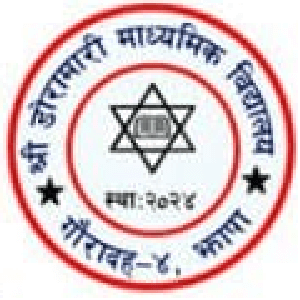Overview
Diploma in Agriculture (Plant Science) at Narbahadur Karmacharya Smriti Pratisthan, Jhapa
Agriculture has always been at the center of life and livelihood. At Narbahadur Karmacharya Smriti Pratisthan (NBKSP), Birtamode-2, Beldangi, Jhapa, the Diploma in Agriculture (Plant Science) offers students a path to understanding how plants grow, how food is produced, and how farming practices can improve lives. This three-year program, affiliated with CTEVT, invites SEE graduates to build knowledge that directly addresses real-world needs.
Curriculum Details
The course combines classroom learning with field experience. Major areas of study include:
-
Soil Science and Plant Nutrition
-
Crop Production and Management
-
Plant Protection Techniques
-
Seed Science and Technology
-
Horticulture and Vegetable Farming
-
Farm Machinery and Irrigation Practices
-
Agricultural Economics and Farm Management
-
Post-Harvest Technology
Students can practice in agricultural fields and laboratories explicitly designed for plant science training.
Objectives
The program aims to prepare students who can work with farmers, agricultural businesses, and communities to improve crop yields, protect the environment, and promote sustainable farming practices.
Scope
Graduates can explore opportunities in:
-
Agricultural offices and research centers
-
Cooperatives and farming groups
-
Private agribusiness companies
-
Seed production and marketing firms
-
NGOs working in rural development
Students who wish to study further can pursue bachelor's degree programs in agriculture and related fields.
Learning Outcomes
By completing the course, students will:
-
Plan and manage agricultural crop production systems
-
Identify plant diseases and recommend protection methods
-
Analyze soil health and recommend improvements
-
Manage seed production and distribution activities
-
Promote sustainable and community-based farming techniques
Skill Development Modules
The training focuses on building practical skills such as:
-
Soil testing and analysis
-
Crop nursery development
-
Pest and disease control
-
Sustainable farming methods
-
Farm management planning
Teaching Methodology
NBKSP combines theory and practice throughout the learning process. Instruction is offered in both English and Nepali. Students attend lectures, participate in lab activities, visit farms, and work on practical agricultural projects that reflect real farming challenges.
Admission Requirements
Eligibility for admission includes:
-
Completion of SEE or equivalent qualification
-
Meeting the minimum GPA requirement as per CTEVT standards
-
Passing the entrance examination conducted by CTEVT
-
Submission of required academic and citizenship documents
Career Opportunities
Diploma holders can work in roles such as:
-
Agriculture Technician
-
Crop Production Assistant
-
Seed and Fertilizer Company Staff
-
Farm Supervisor
-
Community Agriculture Facilitator
They also play a key role in supporting rural development through agricultural innovation and extension services.
Scholarships and Financial Aid
NBKSP provides scholarships through:
-
Merit-based categories
-
Quotas for women, marginalized communities, and conflict-affected groups
-
Sponsored quotas for eligible applicants
Financial support helps more students from diverse backgrounds access technical education.
Why Choose This Course?
Agriculture touches every aspect of life, and those who understand it help shape the future. Studying Agriculture (Plant Science) at NBKSP means gaining practical knowledge, learning from experienced instructors, and contributing to efforts to build stronger, more resilient communities.
Conclusion
The Diploma in Agriculture (Plant Science) at Narbahadur Karmacharya Smriti Pratisthan is about learning how to farm and understanding life, growth, and community. Students graduate ready to contribute meaningfully to agriculture, rural development, and food security.



















